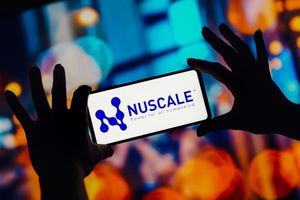UserTesting’s Global Survey Uncovers American Preference for Online and AI-Based Healthcare Insights Over Traditional Doctor Consultations Compared to Counterparts in Australia and the United Kingdom
Study Reveals 44 percent of Brits and 27 percent of Australians wouldn’t trust AI to handle health-related tasks, compared to only 6 percent of Americans that share the same, anti-AI sentiments.
UserTesting, a leader in experience research and insights, today unveiled findings from its global consumer healthcare and artificial intelligence (AI) survey conducted by OnePoll. The study focused on the similarities and differences between American, Australian, and British consumers and their attitudes and behaviors as it pertains to the use of the Internet and AI-powered healthcare advice. The survey revealed a tendency among adults, globally, to consult the Internet for mild symptoms, whereas they more commonly consult physicians for moderate to severe symptoms.
This press release features multimedia. View the full release here: https://www.businesswire.com/news/home/20231206046673/en/
Notably, Australians (51%) and adults from the UK (41%) are more inclined to initially consult their physicians for severe symptoms compared to Americans (17%). The survey findings suggest a significant disparity in how consumers in different countries perceive their understanding of their health compared to their doctors as well as their reliance on the Internet and AI for diagnosis and health information. In the United States, 73 percent of respondents believe they understand their health better than their doctors, while in the UK and Australia, the figures are considerably lower, at 43 percent and 42 percent, respectively.
Consumer attitudes towards confidence in AI/technology companies protecting health information vary significantly across the regions as well, with 78 percent of Americans responding favorably, whereas only 42 percent of Australians conveyed confidence in AI/technology companies, and 28 percent of Britons.
Despite Americans’ belief in AI/technology companies, some concerns also emerged in the survey. In the US, the major apprehensions include unwillingness to have their health data sold (49%), used for studies without consent (47%), or for advertising purposes (45%). In contrast, Australian concerns are primarily about identity theft (64%) and uncertainty over data use (62%), with a similar percentage unwilling to have their health data sold. In the UK, the reluctance to have health data sold is even higher (74%), along with concerns about data use for advertising (64%) and general uncertainty about data usage (60%).
Another area showcasing expanding disparities between global consumers was their trust in AI for health-related tasks. Findings suggest that Americans are more receptive to using AI for actual healthcare treatment options, whereas Australians and Britons would trust AI primarily for automating administrative tasks:
- 53% of Americans would trust AI for treatment plans, 52% for scheduling doctor appointments, and 47% for prescription coordination; while only 6% would not trust AI for any health tasks.
- In the UK, 27% would trust AI for scheduling appointments, 23% for health record tracking, and 22% for prescription coordination; with 44% not trusting AI for any health tasks.
- In Australia, 37% would trust AI for scheduling appointments, and 30% for fitness plan recommendations and health record tracking; with 27% not trusting AI for any health tasks.
When it comes to trusting AI for diagnosing medical conditions, Americans are far more trusting than their counterparts in Australia and the United Kingdom:
- In the US, 48% trust AI for chronic illness, 42% for COVID-19, and 40% for cold/flu; with 12% not trusting AI for any diagnosis.
- In the UK, 65% would not trust AI for any diagnosis, while 21% would trust it for cold/flu.
- In Australia, 53% wouldn’t trust AI for diagnoses, with 30% trusting it for cold/flu and 20% for COVID-19.
“As the US grapples with increasing healthcare accessibility issues, AI and technology’s role in healthcare becomes more vital,” said Lija Hogan, principal of enterprise research strategy at UserTesting. “In countries with universal healthcare like the UK and Australia, technology’s support is important but not as critical. The challenge lies in establishing safeguards to ensure quality advice and effective patient-provider connections.”
The survey also sheds light on the usage of smartphones and wearable devices for health tracking, showing that majority of consumers leverage their devices for health/fitness related purposes:
- In the US, 45% opt in for health tracking using their smartphones, 15% using a wearable device, and 26% opt in using both, while 14% do not opt in to track their health.
- In the UK, these figures are 29% for using smartphones, 15% for wearables, and 13% for both, while 43% do not opt in for health tracking.
- In Australia, 42% opt in for health tracking with their smartphones, 11% for wearables, and 13% for both, while 34% do not opt in for health tracking.
Growth of the mobile health industry is forecast by Statista to grow to more than a $195 billion industry in 2025, representing a huge opportunity for expansion and innovation in this market—further providing consumers greater access to a broader array of healthcare services and experiences than previously available.
“The PX—or patient experience—extends beyond direct interactions with healthcare providers,” concluded Hogan. “It includes digital touchpoints where AI plays a significant role in providing understandable and relevant information, enhancing the overall healthcare journey.”
Survey methodology:
This random double-opt-in survey of 2,000 general population of Americans, 1,000 general population from the United Kingdom and 1,000 general population of Australians was commissioned by UserTesting between October 13 and October 17, 2023. All respondents were adults. It was conducted by market research company OnePoll, whose team members are members of the Market Research Society and have corporate membership to the American Association for Public Opinion Research (AAPOR) and the European Society for Opinion and Marketing Research (ESOMAR).
To access the UserTesting AI & Healthcare Report, click here.
About UserTesting
UserTesting is fundamentally changing the way digital products and experiences are built and delivered by helping organizations get insights from customers–from concept to execution. Built on top of a world-class, on-demand sourcing engine, customers can receive fast, high quality, opt-in feedback from both our proprietary and partner-sourced audience networks around the world. UserTesting offers the industry's most comprehensive experience research solution. Unlike approaches that track user behavior or collect customer listening data on live experiences, then try to infer what that data means, UserTesting enables companies to get input directly from customers–earlier in the process–helping to reduce guesswork, and bringing experience data to life with human insight. The company, formed through the combination of UserTesting & UserZoom, has more than 3,400 customers worldwide, including 75 of the Fortune 100 companies. To learn more, visit www.usertesting.com.
View source version on businesswire.com: https://www.businesswire.com/news/home/20231206046673/en/
Contacts
Media Contact:
UserTesting, Inc.
Andy Dear
press@usertesting.com
More News
View More




Recent Quotes
View More
Quotes delayed at least 20 minutes.
By accessing this page, you agree to the Privacy Policy and Terms Of Service.